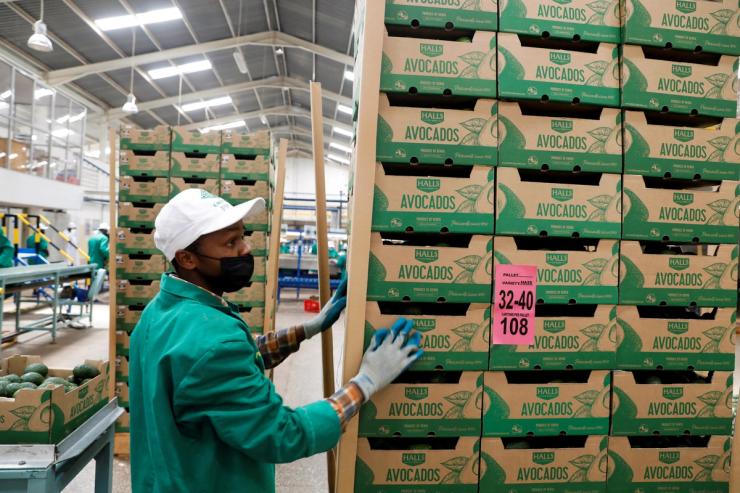The News
Kenya’s government is doubling down on its labor export program, despite growing criticism from lawmakers and young people concerned about its socio-economic implications.
Since 2022 President William Ruto’s administration has signed a handful of overseas labor partnership agreements in a bid to cut soaring youth unemployment and drive up foreign remittances. The program has enabled 400,000 unemployed Kenyans to take up jobs in countries including the United Kingdom, the United Arab Emirates, Qatar, and Poland where they have helped plug critical worker shortages in low-skill sectors such as domestic work and social care.
Now the government is trying to boost the program by negotiating new labor agreements meant to grow the number of jobs secured abroad to 1.76 million. At a religious forum in Nairobi this month, Ruto called upon church leaders to encourage youth members to take up overseas job opportunities, part of a wider strategy to meet his administration’s official target of sending 1 million Kenyans per year overseas.
The government push comes despite a Senate probe in May that revealed the labor program was fraught with problems including the commercial exploitation of job seekers, fraud, and poor working conditions overseas.
Suggesting that young Kenyans were being fussy about the opportunities, many of which involve domestic work or manual labor, Ruto encouraged them to take advantage of the deals. “You don’t choose the type of job to do. If there’s a job, go for it,” he argued, stating that Kenyans working abroad under the program were earning between 100,000 Kenyan shillings ($774) and 200,000 shillings ($1548) a month per Ruto. “That is not little money,” he said.
Know More
Corrine Ngurukie,CEO of Generation Kenya — a nonprofit that trains young people and helps them secure entry-level jobs in Kenya, told Semafor that a balance needed to be struck between finding suitable opportunities abroad and creating more jobs at home.
“I’m not averse to jobs abroad, but we need to put workers’ safety first,” she said, arguing for stronger international labor protections for migrant workers. With reports of some Kenyan youth turning down work opportunities abroad under the program, Ngurukie also observed that a significant chunk of the youth population preferred to work within Kenya. Investment in strategic sectors such as green jobs, construction, and agriculture would create opportunities for young people to work in Kenya itself, she argued, as well as better matching up of unemployed Kenyans with the growing local demand for skilled trades such as plumbing.
Step Back
Frustration with the labor export program comes at a time when Ruto’s administration is generally unpopular with young Kenyans. They protested in the tens of thousands last year over a controversial tax hike proposal that Ruto was eventually forced to drop, and took to the streets again last week following the death of a teacher, Albert Ojwang’, in police custody.
Many Gen Z and millennial Kenyans see the program as out of touch. “The only reason they are pushing this program is because they have failed to create the 1 million new jobs a year they promised while campaigning in 2022,” said John Wafula, a youth activist with the Bunge la Wananchi civic education group.
Martin’s view
Kenya added only 782,000 jobs in 2024, according to the country’s statistics bureau, a five-year low. It was a decline from 848,100 the previous year — reflecting sluggish economic growth. Many young people are frustrated, with particular anger channeled towards Ruto as he rode to power on the promises of job creation and youth empowerment.
To some Kenyans, the labor agreements are evidence of the government’s failure to create enough jobs for the population. But to others, the international labor market offers a clear opportunity for the country with its youthful, skilled population and unemployment challenge.
Ultimately, the labor export program shouldn’t be seen as a cop-out by the government but rather as a single element of a much larger jobs plan that ought to prioritize opportunities in the country. This requires driving investment into Kenya by building investor confidence through a more conducive and predictable business regulatory and tax environment.
The government also needs to address the treatment of job seekers through the process, and during their time abroad, to eliminate cases of exploitation and abuse. Jobseekers under the program. The vetting of recruitment agencies in particular is crucial. Reports tabled before the Senate showed more than 300 Kenyans were defrauded by agencies accredited by the National Employment Authority to support the labor export programme.
Room for Disagreement
Government-backed recruitment agencies say the labor export programs are a much-needed salve for unemployed Kenyans.
“We can have intellectual arguments but there is a very long line out there of young Kenyans who are ready to do anything to get a good job now,” said Hamisi Kibwana, founder of a Nairobi-based recruitment agency. “Are they supposed to do nothing yet they can’t find jobs at home.”
He said recruitment agencies — some of which have been at the center of allegations regarding worker exploitation — were now facing tighter regulation and that should make it safer for workers.
Notable
- The death in police custody of a blogger who was critical of the government has prompted a wave of fresh protests in Kenya.


